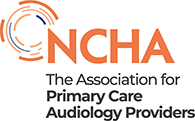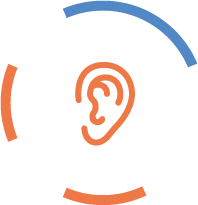27 June 2014
Pathways to better hearing
Throughout our lives our hearing changes. Modern hearing care is also adapting, opening up to the wider healthcare world and making the case for joined up and flexible care based in the community and moulded around people’s needs.
We must plan services around what we know about the changes to people’s hearing throughout life to deliver high quality services and better outcomes that are sustainable and good value for taxpayers.
These pathways will need more integrated services, with all parties playing a part in educating the public, and each other, on the importance of good hearing care and support for those with impaired hearing.
Better hearing services are needed to secure better hearing health: for the population as a whole and for individuals irrespective of their degree of impairment, or the level of their need.
The Hearing Life Journey
To date I am not sure that, as a sector, we have outlined clearly enough to commissioners the hearing life journey.
- For most it will begin with neonatal hearing screening (which will identify problems for intervention and support, mostly for congenital hearing conditions)
- then as we move through childhood there will be aquired hearing changes through accidents and infections* (which we must as far as possible try to mitigate and seek to put right where we cannot)
- then through youth the potential damage from exposure to loud amplified sounds and accidents (better education and working with businesses is the key here)
- then through working age adulthood with all its risks (in spite of much improved health and safety awareness and hearing protection)
- and then - for a very large proportion of us - age-related hearing change which may be linked with other long term conditions including sight loss and various degrees of cognitive impairment such as dementia.
The Pathway Less Travelled
Along this life journey, the NHS, social services, education, the voluntary sector and carers will need to provide clinical and other interventions, emotional and practical support and opportunities for achievement through education, work, leisure and life choices as well as for living well in older age.
At whatever point along the journey and to whatever part of the sector the patient presents, they need convenient access to an appropriate pathway to get the diagnosis, intervention and support they need on their own terms.
My next blog in this series focuses on how to achieve this goal. Whilst the big dream of a fully connected hearing service is something all partners must strive for, there are some simple steps commissioners and providers can make now to refine the pathways we already have.
Click here to read the next instalment: A pathway through better hearing services
* Infections and accidents can effect our hearing throughout life, of course, and there are some congenital hearing conditions that may manifest when we are older.

Press enquiries
Media enquiries should be directed to [email protected] or call 020 7298 5110.
We are happy to put you in touch with our expert policy advisers who can comment on a variety of issues.
You can also follow us on Twitter and LinkedIn.

 Your hearing and aural health
Your hearing and aural health  Commissioners and Policymakers
Commissioners and Policymakers  Member support and guidance
Member support and guidance News and views
News and views
 Hearing map
Hearing map
